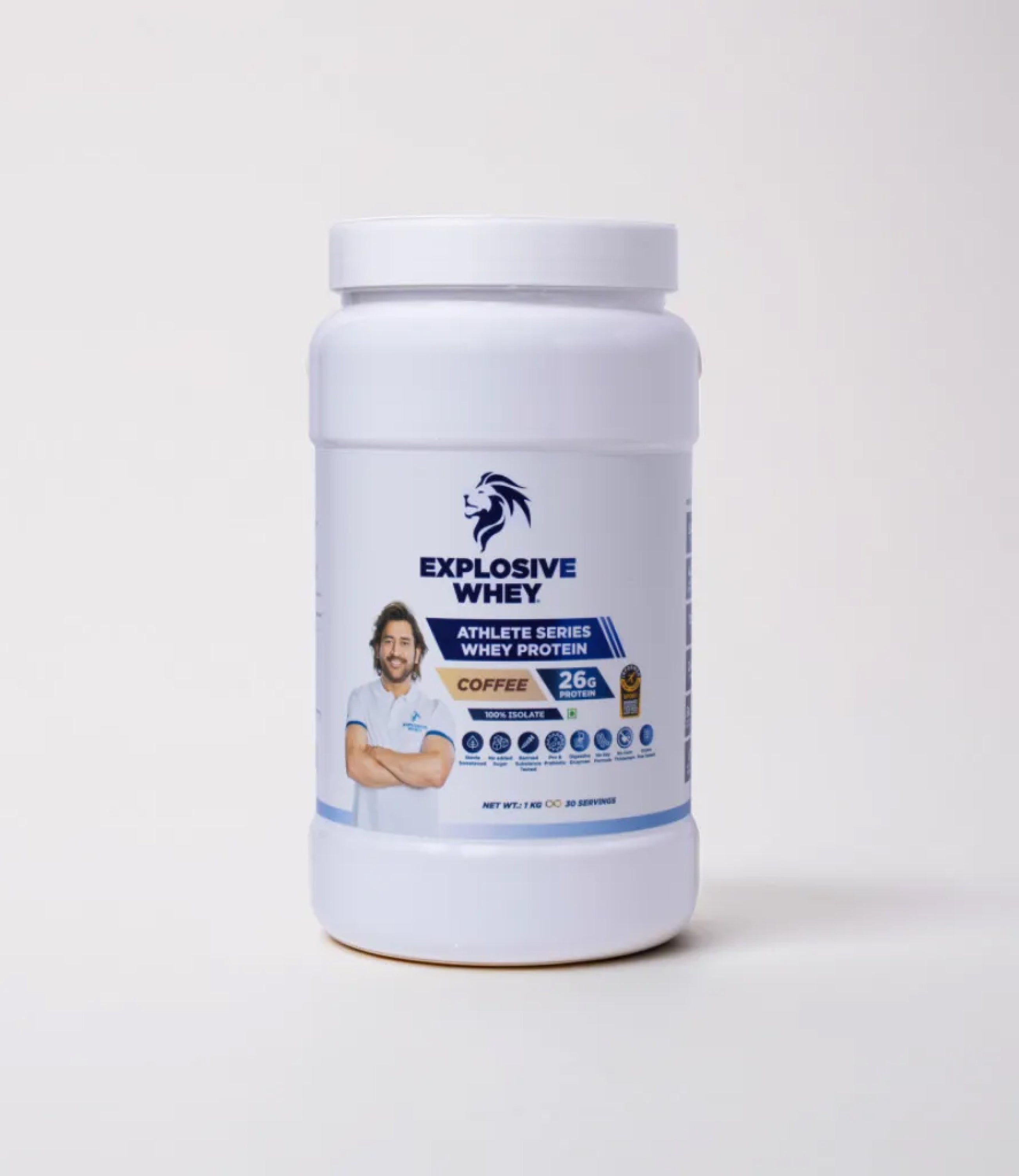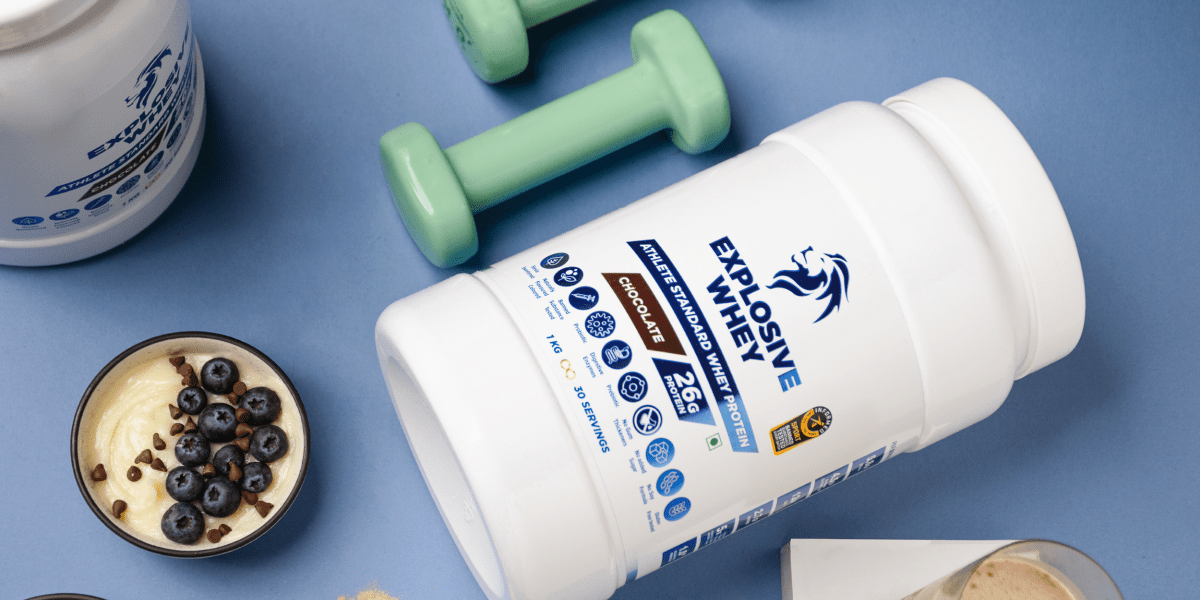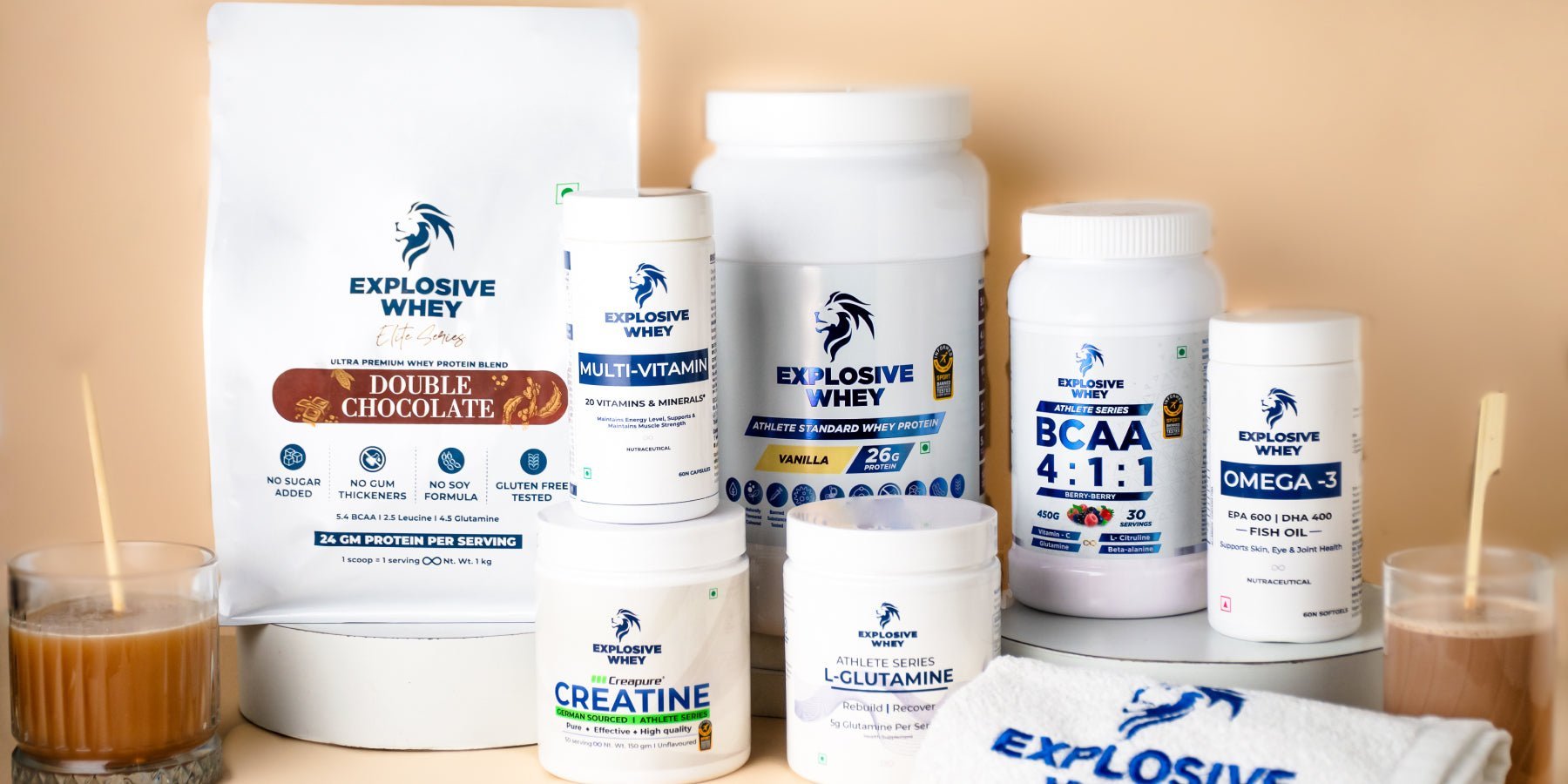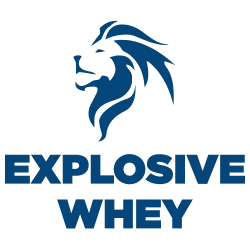As cricketers strive for peak performance, whey protein powder has gained immense popularity for its role in enhancing recovery and muscle growth. Understanding the basics of whey protein, including its benefits and nutritional value, is essential for athletes looking to optimize their training and recovery routines.

Whey Protein's Vital Role in Athletic Excellence
Whey protein plays a vital role in supporting athletic excellence among cricketers, providing a convenient and effective way to meet their protein needs. With its rapid absorption and rich amino acid profile, whey protein powder helps facilitate muscle repair and growth, making it an invaluable supplement for athletes striving to maximize their performance on the field.
What is Athlete Standard Whey Protein?
Athlete Standard is a renowned brand known for its quality whey protein powder, including the explosive whey variant, tailored to meet the recovery and muscle-building needs of athletes, including cricketers. With features such as rapid absorption and high amino acid content, Athlete Standard Whey Protein offers numerous benefits for post-workout recovery and muscle growth. Additionally, athletes can choose from a variety of flavors and variants to suit their preferences and dietary requirements.

The Wonders of Whey Protein
Source and Production Process
Whey protein is derived from milk during the cheese-making process, where it is separated from the curds. Athlete Standard utilizes advanced production techniques to ensure the purity and quality of their whey protein powder, maintaining the integrity of the protein and preserving its nutritional benefits for athletes.
Types of Whey Protein
- Whey Protein Concentrate: Contains a higher percentage of protein along with some fats and carbohydrates, making it a versatile option for athletes.
- Whey Protein Isolate: Undergoes further processing to remove most of the fats and carbohydrates, providing a purer protein source ideal for those seeking maximum protein content with minimal additives.
- Whey Protein Hydrolysate: Pre-digested, making it easier to absorb and ideal for athletes with sensitive stomachs or those looking for faster recovery post-exercise.
Rich Nutritional Profile of Whey Protein
Protein Content and Amino Acid Composition
Whey protein powder boasts a high protein content, making it an excellent choice for athletes looking to support muscle recovery and growth. Additionally, its amino acid composition, including essential amino acids like leucine, isoleucine, and valine, promotes muscle repair and synthesis, contributing to overall athletic performance.
Additional Nutrients in Athlete Standard Whey Protein

In addition to its protein content, Athlete Standard Whey Protein contains essential vitamins and minerals crucial for overall health and well-being. These nutrients include calcium, which supports bone health, and B vitamins, which play a role in energy metabolism. By incorporating whey protein into their diets, athletes can benefit from a comprehensive source of nutrition to support their active lifestyles.
The Benefits of Using Whey Protein
- Whey protein supports muscle recovery and growth, helping athletes bounce back from intense workouts more quickly.
- Increased protein synthesis facilitated by whey protein aids in muscle repair and adaptation, leading to improved athletic performance over time.
- Whey protein also boosts the immune system, helping athletes stay healthy and resilient against illnesses that could sideline their training and competitions.
- Incorporating whey protein into a balanced diet can assist in weight management by promoting feelings of satiety and supporting muscle mass retention, essential for maintaining a healthy body composition.

Ideal Times for Consuming Whey Protein
Consuming whey protein powder is ideal immediately after a workout to support muscle recovery and synthesis, as well as in the morning to kickstart your day with a nutritious boost.
Recommended Dosage for Athletes

For athletes, a recommended dosage of whey protein powder typically ranges from 20 to 30 grams per serving, depending on individual protein needs and fitness goals. It's advisable to consult with a nutritionist or healthcare professional to determine the optimal dosage for your specific requirements.
Incorporating Whey Protein into Daily Routine
Recipes and Smoothie Ideas
Berry Blast Smoothie
- 1 cup mixed berries (strawberries, blueberries, raspberries)
- 1 scoop whey protein powder (vanilla or unflavored)
- 1/2 banana
- 1/2 cup Greek yogurt
- 1/2 cup spinach leaves
- 1/2 cup almond milk (or any milk of your choice)
- Ice cubes (optional)
Green Power Smoothie
- 1 scoop whey protein powder (unflavored or vanilla)
- 1/2 cup pineapple chunks
- 1/2 ripe avocado
- Handful of kale or spinach leaves
- 1 tablespoon honey or maple syrup (optional)
- 1/2 cup coconut water
- Ice cubes (optional)
Chocolate Banana Protein Smoothie
- 1 scoop whey protein powder (chocolate flavor)
- 1 ripe banana
- 1 tablespoon almond butter or peanut butter
- 1 tablespoon cocoa powder
- 1/2 cup Greek yogurt
- 1/2 cup milk (dairy or plant-based)
- Ice cubes (optional)
Creative Ways to Consume Whey Protein Powder
Get creative with how you use whey protein powder by incorporating it into your favorite recipes. You can add it to pancake or waffle batter, oatmeal, yogurt, or even baked goods like muffins and cookies for an extra protein punch without compromising flavor. Experiment with different flavors and textures to find the perfect combination that suits your taste preferences.
Addressing Common Concerns
Allergies and Sensitivities
When selecting whey protein powder, it's essential to be mindful of potential allergies or sensitivities to milk proteins, as whey is derived from dairy. Consider opting for a lactose-free or plant-based alternative if you have lactose intolerance or dairy allergies.
Potential Side Effects and Precautions

While whey protein is generally safe for most people, some individuals may experience digestive discomfort, such as bloating or gas, especially when consuming large amounts. It's advisable to start with a smaller dosage and gradually increase it while monitoring your body's response. If you have any underlying health conditions or concerns, consult with a healthcare professional before incorporating whey protein into your diet.
Choosing the Right Whey Protein
Reading Labels and Understanding Ingredients
When shopping for whey protein powder, carefully read the labels to understand the ingredients and nutritional content. Look for products that contain minimal additives and fillers, and opt for options with a higher protein content per serving for maximum whey protein benefits.
Factors to Consider in Selecting Athlete Standard Whey Protein
When selecting Athlete Standard Whey, consider factors such as your fitness goals, dietary preferences, and budget. Choose a variant that aligns with your needs, whether you prefer to concentrate, isolate, or hydrolysate, and select flavors that you enjoy. Additionally, look for certifications or third-party testing to ensure the product's quality and purity.
In conclusion, whey powder offers numerous benefits for athletes, including supporting muscle recovery, promoting protein synthesis, and aiding in weight management. By integrating whey protein into their training regimens, athletes can enhance their performance and achieve their fitness goals more effectively.
FAQs
Q1) What are some whey protein recipes for effective post-recovery?
Some whey protein recipes for effective post-recovery include whey protein smoothies with fruits and vegetables, whey protein pancakes topped with Greek yogurt and berries, and whey protein oatmeal with nuts and seeds.
Q2) Which whey protein recipes can enhance energy after workouts?
Whey protein recipes that can enhance energy after workouts include whey protein shakes blended with banana and peanut butter, whey protein energy balls with oats and honey, and whey protein yogurt parfait with granola and sliced almonds.
Q3) What benefits do whey protein recipes offer for recovery?
Whey protein recipes offer benefits for recovery by providing high-quality protein, which aids in muscle repair and growth, as well as essential amino acids that support recovery processes such as reducing muscle soreness and promoting tissue healing.
Q4) How can whey protein recipes be incorporated into a recovery plan?
Whey protein recipes can be incorporated into a recovery plan by consuming them within 30 minutes to an hour after workouts to replenish protein stores and kickstart the recovery process. They can be enjoyed as post-workout shakes, added to meals like oatmeal or pancakes, or included in snacks such as energy balls or yogurt parfaits.










Leave a comment
This site is protected by hCaptcha and the hCaptcha Privacy Policy and Terms of Service apply.